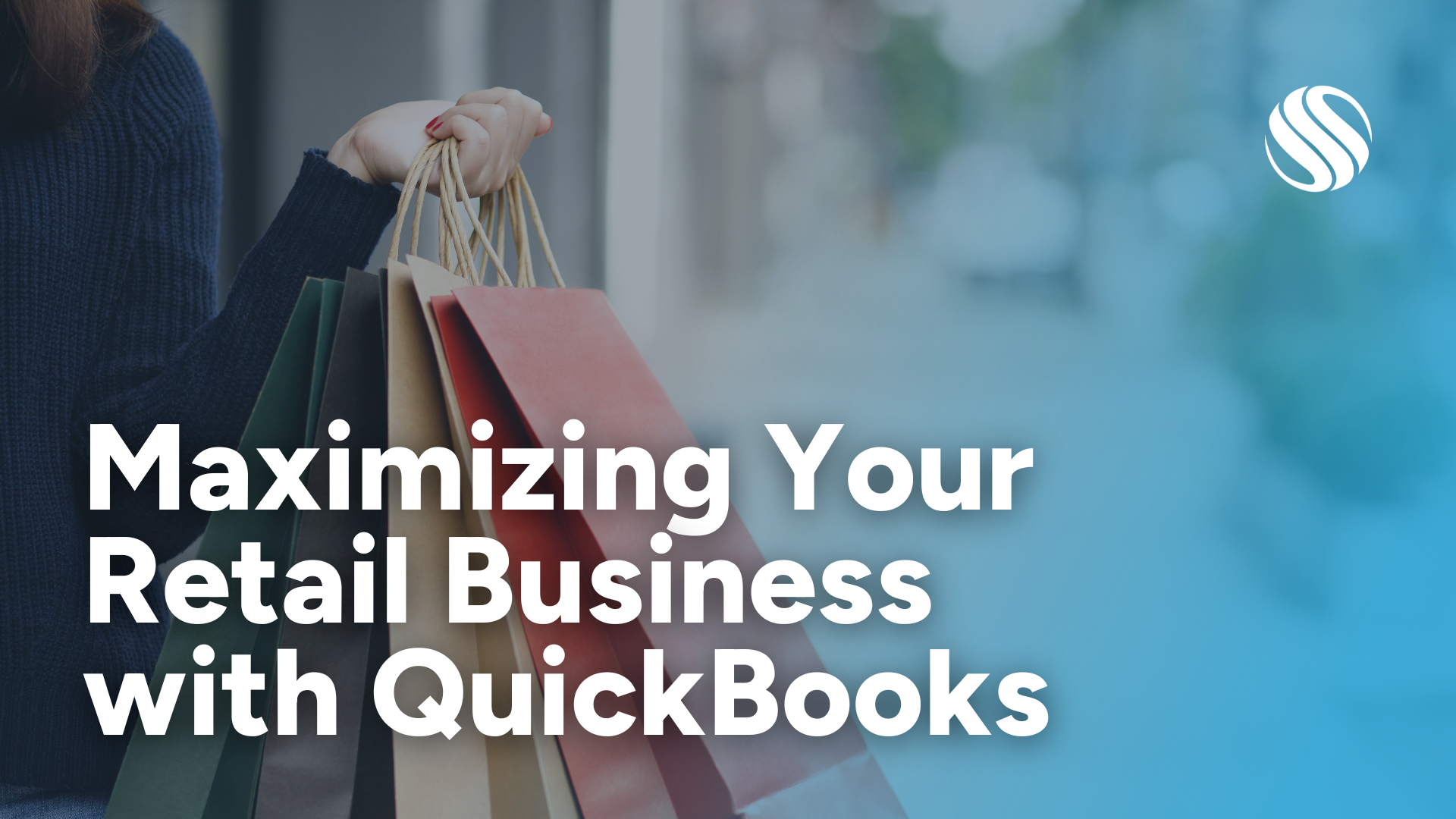
24 Jun Maximizing Your Retail Business with QuickBooks: Essential Tools for Online and Ecommerce Success
By Jeff Siegel
Running a retail business, whether brick-and-mortar, online, or a combination of both, requires streamlined operations and efficient financial management. QuickBooks, a leading accounting software, offers a variety of tools and integrations that can help retail establishments manage their finances seamlessly. Here’s a look at some essential tools you can use with QuickBooks to optimize your retail business operations.
- Retail Features in QuickBooks
QuickBooks offers several built-in features tailored for retail businesses, enhancing your ability to manage various aspects of your operations effectively:
- Locations: Track sales and expenses by different store locations, allowing you to see which locations are performing best and identify areas for improvement.
- Classes: Use classes to categorize transactions by different segments of your business, such as departments, product lines, or service types. This helps in generating detailed reports and understanding profitability across various aspects of your operations.
- Tags: Tags are customizable labels that you can assign to transactions for more detailed tracking. Whether you want to tag transactions by campaign, event, or any other category, tags provide an additional layer of data organization and analysis.
- Reporting and Analytics
QuickBooks offers robust reporting tools to help you understand your business’s financial health. Additionally, you can integrate with third-party analytics tools for more advanced reporting:
- Fathom: Provides deep financial analysis and performance reporting.
- Qvinci: Offers financial consolidation and benchmarking tools for multi-location businesses.
- Spotlight Reporting: Delivers comprehensive reports, dashboards, and forecasts.
- Reach Reporting: Enhances your reporting capabilities with customizable dashboards, detailed analytics, and real-time data integration for insightful financial decision-making.
- Shopify POS
Shopify POS integrates seamlessly with QuickBooks, providing a comprehensive solution for managing both online and in-store sales. With Shopify POS, you can:
- Process sales quickly and efficiently
- Track inventory in real-time across multiple locations
- Manage customer data and loyalty programs
- Integrate sales data directly into QuickBooks for seamless accounting
- Lightspeed POS
Lightspeed POS is another powerful tool for retail businesses, offering robust features for inventory and customer management. Benefits of using Lightspeed POS include:
- Multi-store management capabilities
- Detailed reporting and analytics
- Integration with ecommerce platforms for unified inventory tracking
- Direct sync with QuickBooks for accurate financial records
- QuickBooks Commerce (formerly TradeGecko)
For businesses that operate online, QuickBooks Commerce offers robust inventory and order management capabilities. Key features include:
- Multi-channel inventory management across platforms like Shopify, WooCommerce, and Amazon
- Order management to handle sales from different channels in one place
- Detailed sales and inventory reports for better decision-making
- Integration with QuickBooks Online for streamlined financial tracking
- Ecommerce Integrations
QuickBooks integrates with various ecommerce platforms to ensure smooth data flow between your online store and accounting software. Popular integrations include:
- Shopify: Automatically sync orders, refunds, and fees with QuickBooks Online, helping you keep your financials up to date.
- QuickBooks Online for Shopify: A specialized integration that offers advanced features for managing your Shopify store’s financials directly in QuickBooks Online.
- WooCommerce: Connect your WooCommerce store with QuickBooks to manage sales data and inventory without manual data entry.
- BigCommerce: Sync orders, customers, and inventory between BigCommerce and QuickBooks for accurate financial tracking.
- Payment Processing Solutions
QuickBooks Payments allows you to accept payments directly through QuickBooks, making it easier to manage cash flow and reduce the time spent on reconciling accounts. Benefits include:
- Accepting credit card, debit card, and ACH payments.
- Instant deposit options to get funds faster.
- Seamless integration with QuickBooks for easy tracking of payments and fees.
- Inventory Management Apps
For more advanced inventory management, several third-party apps integrate with QuickBooks to provide enhanced capabilities. Some popular options are:
- SOS Inventory: Offers advanced inventory, order management, and manufacturing features.
- Fishbowl Inventory: Suitable for larger businesses needing robust inventory management and manufacturing solutions.
- Cin7: An inventory management system that integrates with various sales channels and QuickBooks for comprehensive inventory control.
- Katana: A manufacturing ERP that integrates with QuickBooks to provide real-time inventory and production management, ideal for businesses needing to coordinate manufacturing and inventory processes.
- Customer Relationship Management (CRM)
Maintaining strong customer relationships is crucial for retail success. CRM tools that integrate with QuickBooks can help manage customer data, track sales interactions, and improve customer service. Some notable CRM integrations are:
- Salesforce: Sync customer data and financials between Salesforce and QuickBooks for a 360-degree view of your business.
- Zoho CRM: Connects with QuickBooks to manage customer data, sales, and support in one place.
- HubSpot: Integrates with QuickBooks to streamline marketing, sales, and customer service efforts.
- Results CRM: Integrates with QuickBooks to manage sales, marketing, customer service, and project management, providing a comprehensive solution for improving customer relationships and business efficiency.
Things to Consider
When choosing ecommerce integrations and tools for QuickBooks, consider the following:
- Order Download Level: Does your ecommerce add-on download orders into QuickBooks at the summary level or the products and services level? The latter is essential for tracking inventory accurately.
- Data Sync Frequency: How frequently does the integration sync data between your ecommerce platform and QuickBooks?
- Customization: Does the tool allow for customization to fit your specific business needs?
- Multi-Channel Capabilities: Ensure the integration supports multi-channel operations, including POS systems, multiple websites, marketplaces, and direct sales out of QuickBooks. This is crucial for managing a unified inventory and sales strategy across all platforms.
- Payroll Allocation: Does the payroll solution allow for breaking out payroll under the appropriate class or location? This is important for accurate financial reporting and budgeting.
- Payment Solutions: Choose a payment solution that integrates seamlessly with QuickBooks, allowing for easy reconciliation. Ensure that fees and other charges are not netted against the sales amounts to maintain clear and accurate financial records.
Leveraging these tools and integrations with QuickBooks can transform how you manage your retail business, both online and in-store. By automating processes, improving accuracy, and providing real-time insights, you can focus more on growing your business and delivering excellent customer experiences. Explore these tools to see how they can fit into your business strategy and take your retail operations to the next level.

























